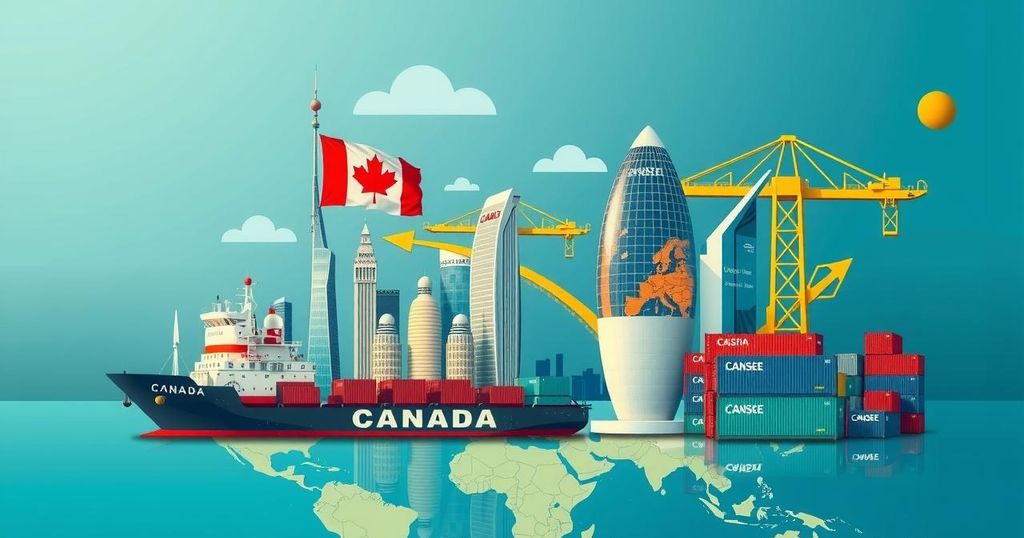Canada’s response to U.S. tariffs includes implementing counter-tariffs on $20.8 billion of U.S. goods in retaliation to President Trump’s steel and aluminum taxes. Despite prior diplomatic outreach, tensions have escalated, prompting calls for strong political responses and a reevaluation of trade strategies. Experts advise that urgent renegotiation of the USMCA deal may be essential for resolution.
In light of escalating trade tensions, Canada has implemented counter-tariffs against the United States in response to President Trump’s imposition of 25% tariffs on Canadian steel and aluminum. Ottawa mandated new tariffs on approximately C$30 billion ($20.8 billion) of U.S. goods. Meanwhile, the European Union announced measures against U.S. products valued at €26 billion ($28.3 billion). Countries like Japan and South Korea, however, have refrained from immediate retaliation.
Despite previous diplomatic efforts to mitigate Trump’s tariffs, including visits by Canadian officials to Mar-a-Lago and the U.S. capital, relations have soured. Trump’s tariffs were justified by claims related to drug trafficking and border security, leading to a significant shift in public sentiment in Canada, which now demands a robust response to U.S. aggression.
Political leaders, including Manitoba premier Wab Kinew, had initially approached discussions with an intent to foster peace. However, as tensions mounted with the introduction of tariffs, Kinew has resorted to a more confrontational stance, removing U.S. products from stores and publicly mocking Trump’s signature style.
British Columbia Premier David Eby has echoed the frustration shared across Canada, vowing to convey this anger to American officials. In contrast, Mexico has remained relatively diplomatic, responding to threats with stronger border security but refraining from retaliation. President Trump exempted some Mexican goods from tariffs, while continuing to criticize Canada’s Prime Minister Justin Trudeau.
Experts are divided on the effectiveness of Canada’s aggressive tactics. David Collins, a professor of international trade law, argues for renegotiation of the USMCA trade deal as a necessary step, pointing to political instability following Trudeau’s resignation announcement as a delaying factor. Similarly, professor Kevin Milligan suggests the Canadian government must adapt its strategy to effectively address the underlying issues without provoking further hostility from Trump.
In summary, Canada faces significant trade challenges due to aggressive U.S. tariffs imposed by President Trump, leading to retaliatory actions and a call for strength from Canadian leaders. Diplomatic attempts have largely failed, resulting in a shift towards confrontation. The Canadian government must now navigate complex international relations, weighing the benefits of diplomatic overtures against the provocations that come from escalating brinkmanship, while simultaneously considering a strategic approach towards renegotiating trade agreements. The outcome of this standoff could reshape economic ties within North America.
Original Source: m.economictimes.com




